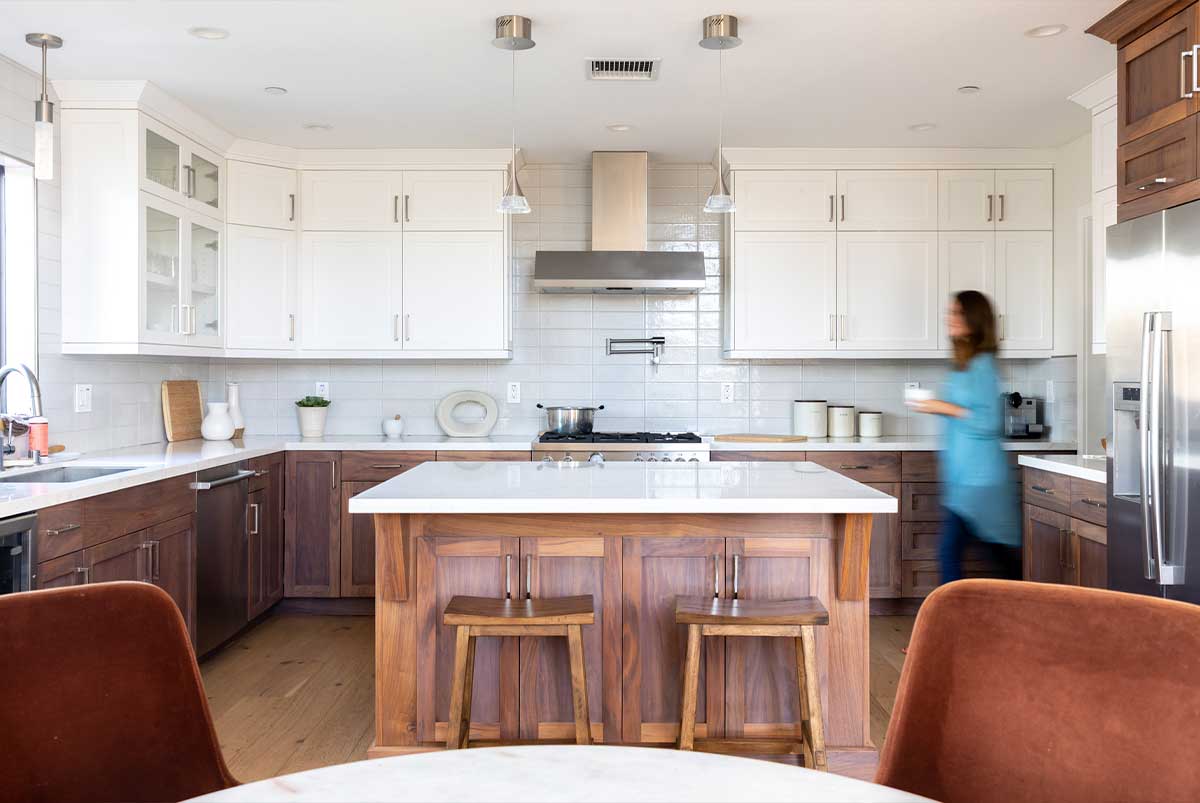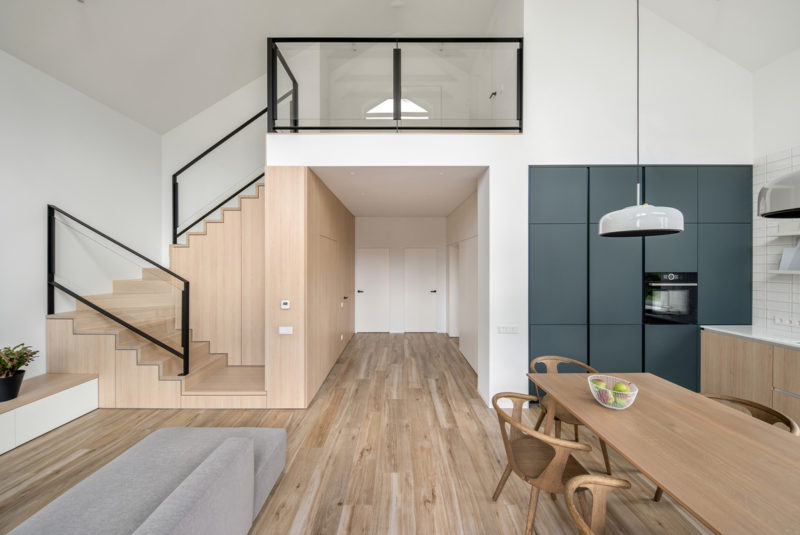Ready To Buy a Home?
Get Approved to Buy a Home
Rocket Mortgage® lets you get to house hunting sooner.
Airbnb introduced a new option to the world of real estate investment. Since its debut in 2007, the vacation rental platform has upended the travel industry in many ways, becoming the lodging provider of choice for both business and leisure travelers.
Airbnb investments can be profitable, allowing you to make money without requiring a lot of start-up knowledge.
Also, Airbnb investment can lower barriers to real estate investment, especially when compared to buying and owning a property and renting out units.
To help decide whether an Airbnb investment is right for you, let’s take a look at the pros and the cons.
What Is Airbnb Investing?
Airbnb investing is an investment strategy where investors buy real estate to list it on Airbnb as a short-term rental.
In the early days, Airbnb hosts often rented out single rooms in their homes. But, today, Airbnb investing is a different approach. Now, Airbnb investors can also own and rent out an entire property – like a single-family home, condo or vacation property – to short-term tenants.
The ease of use and savings over a hotel stay make Airbnb rentals attractive to business travelers, vacationers and anyone in need of a short-term rental. Investors like Airbnb rentals because they generate income – but, like any investment, there are potential drawbacks to consider.
How Does an Airbnb Investment Work?
With a traditional investment property, the investor is locked into a long-term tenant who may rent for years.
With an Airbnb arrangement, the investor lists the property for rent on Airbnb. Potential renters search for available properties based on location, price and other factors and rent out the property for a predetermined block of days. The renter pays their rental fees to Airbnb, then Airbnb pays the investor (aka the property owner).
An Airbnb investor doesn’t have to worry about lease agreements, scheduling stays or requesting payments. Everything is handled through Airbnb’s platform.
As an Airbnb investor you can:
- Have more control over when and how you earn income from your investment property
- Make your property available for most of the year but block off time, so you can also enjoy the property
- Rent out part of a property – a guest house, an affordable dwelling unit (ADU) or a conjoined apartment, for instance – while living in the main house on the property
Airbnb Investment Pros and Cons
Airbnb investing is significantly different from traditional real estate investing. Let’s say you invest in an apartment building. You can pretty much sit back and enjoy the predictable income. Short-term rental investing with Airbnb is the opposite. In fact, it’s quite competitive – and becoming more so.
Many Airbnb renters expect high-end services and amenities as if they were staying at a hotel. Providing that level of accommodation may require a fair amount of work and/or money, and you may not be interested in providing it.
Understanding the advantages and disadvantages of Airbnb investing can help you decide if it’s the right kind of investment for you.
Pros
The advantages of Airbnb investments lie in the flexibility associated with the investment, the potential for higher profits and the ease of finding renters.
Cash flow and income
Airbnb’s short-stay model allows Airbnb investors to generate a steady stream of passive income if they can maintain a steady streak of short stays. To keep the streak going, an investor needs a high-value property that gets solid reviews.
A well-run Airbnb property in a desirable location can earn significantly more than a long-term, traditional rental in the same neighborhood. By charging less than a comparable hotel, you could earn much more on your property than you would if it were a monthly rental.
And here’s a bonus: You can change your rental prices whenever you want with an Airbnb property. If, for example, your beach-adjacent property becomes the hottest spring break destination, it might be time to raise the rent.
Ease of upkeep
Many Airbnb owners find that the expense and work required to maintain their property is, perhaps surprisingly, less than what’s required for a traditional rental. That’s because Airbnb renters pay for cleaning. And because of frequent turnover, the property gets cleaned often.
Plus, Airbnb renters are likely to inform owners of maintenance issues right away (or include them in their reviews), so you can take care of any problems ASAP.
Flexibility
With Airbnb, you can rent your property whenever you want. If renting is only profitable at certain times of the year, you can pull the property off the Airbnb market during downtimes. You can also block off time for personal reasons, like your birthday weekend or a friend’s wedding party getaway.
Ease of finding renters
Finding and vetting tenants for traditional, long-term rentals can be stressful. Airbnb helps reduce some of that stress with its screening tools.
And because short-term renters don’t sign a lease, you don’t have to worry about them legally overstaying their welcome.
Cons
Airbnb investments come with some drawbacks, including increased involvement and higher risks.
Potential higher upfront costs
Depending on the property type and location, Airbnb owners may find themselves spending lots of money upfront (and often) to offer renters a great experience and stay competitive with nearby Airbnb rentals.
Greater involvement with property management
Because tenants are constantly changing, an owner may have a lot more work to do. Between the constant communication with tenants, key swaps and ongoing maintenance, some owners may feel like their Airbnb rental is a second job.
You can reduce or eliminate some of these issues with a few hacks. For example, you can install keyless locks that let you change the passcode remotely and streamline the check-in process.
If you want to be even more hands off, you can hire cleaners and a property management company to handle communication with your tenants and maintenance. Just note that if you hire a cleaner and/or property manager, their fees will eat into your profits.
Risk
Because renters are in and out of Airbnb properties as often as every week, there’s a greater risk of property damage. Guests may decide to throw parties that end with broken property and wine-stained carpets. Very short-term renters may not feel responsible to keep your property the way they found it.
To help minimize the risk of damage, vet guests by reviewing their profiles, reading reviews left by previous hosts and asking additional questions before accepting a rental.
You’ll also need to pay for short-term rental property insurance, so you’re covered in case of any damage.
Is an Airbnb Investment More Profitable Than a Traditional Rental Property Investment?
The answer to this question largely depends on where your property is located. In a high-demand area, an Airbnb rental can be more profitable than a traditional rental property.
When considering whether a rental property can be profitable, you need to consider your return on investment (ROI). The simple formula for determining ROI for a rental property is to divide your annual investment gain (the money you earn after expenses) by the total cost of the investment.
Rental ROI = Annual Investment Gain / Investment Cost
Let’s assume that you buy a single-family investment property for $200,000. This is your investment cost.
Scenario #1: Rent it out
Let’s say the average monthly rent for a single family-unit in an area is around $2,000. That translates to an annual rental income of $24,000. It costs you $15,000 a year to cover your mortgage payments, taxes, insurance and routine maintenance costs.
After you pay your expenses you’re left with a $9,000 a year annual investment gain and an ROI of 4.5%. Not too shabby and it’s a stable income that you can count on receiving every month.
Scenario #2: Airbnb
According to Airbnb, the average host earned $13,800 in income in 2021.[1] If we apply that to our $200,000 single-family rental, you get an ROI of 6.9% In this scenario, you could make more money with an Airbnb compared to a rental.
But what if it’s an off-year and you only earn an investment gain of $8,000. When that happens, your ROI drops to 4%. You’ll still make a profit, but suddenly the rental looks like the better option.
Airbnb Investment Expenses
As we mentioned before, an Airbnb can be more profitable than a rental, but there are additional expenses to consider. including:
- A fully furnished rental unit with all the comforts of a home
- A fully equipped kitchen (including cookware, dishes and utensils)
- Wi-Fi
- Utilities (which may include phone and satellite or cable TV)
- Towels and bed linens
- Basic food and pantry items (coffee, spices, etc.)
- Amenities to provide a great guest experience (bicycles, beach toys, etc.)
- Frequent cleaning and other maintenance costs
To make an Airbnb investment profitable, you have to run it like a business. Provide creative amenities in an upscale environment that attracts renters who are willing to pay for the extra effort.
Airbnb mortgages
Another expense to consider is the cost of getting a mortgage. Buying any investment property usually requires a down payment of 20% and will come with a higher interest rate than you might be able to get buying a primary residence.
This applies to both rental and Airbnb properties. But your lender may be less willing to give you a loan for an Airbnb property. Why? Lenders know that the Airbnb rental market can be unpredictable which means more risk.
So if you’re planning to buy a property to use exclusively as an Airbnb rental, you may need to:
- Demonstrate that you have enough income to cover the mortgage without the rental income.
- Offer to make a larger down payment.
- Use the home as a rental property to start and then switch to Airbnb renting to establish your rental income potential.
Which Type of Property Should I Buy for an Airbnb Investment?
Take a look at the Airbnb listings in your neighborhood to see what properties are most in demand. For example, you may find that your condo near the airport is the most popular type of rental, or you may discover that your neighbors are listing their guest home as a vacation property.
Many real estate agents are experienced at helping investors find excellent Airbnb rental properties. They can help with the entire process, including researching local regulations to make sure Airbnb rentals are allowed in your area.
When you’re shopping for a rental property, research the area to find an attractive location that provides the amenities Airbnbers have come to expect. If your property is within walking distance of public transportation, restaurants and local attractions, that’s even better.
Which Cities Are the Best for Airbnb Investment?
Many of the top cities for Airbnb are in traditional vacation locations, near the beaches of Hawaii, Florida and other Gulf Coast destinations. But it may also be worth considering major cities and business centers that attract business travelers or burgeoning cities with growing populations.
Also, keep in mind that locations with high demand for living space usually have higher home prices. Even if you can make a steady $2,000 a month with an Airbnb property, if your mortgage payments and other expenses exceed what you can take in, you risk losing money.
Do I have to live close to my Airbnb property?
If you live relatively near your investment property, you can enjoy the property during any scheduled or unscheduled downtime. If you live far from the property, you may not be able to personally enjoy the property, but with the help of a property manager, you can reap the benefits of owning a rental property.
Legalities To Think About When Investing in Airbnbs
Many cities, counties and states have recently passed laws restricting Airbnb rentals. Cities like San Francisco and Las Vegas limit the number of days you can rent your property or the number of guests you’re allowed to host. Restrictions like these may reduce your profit potential and income.
In some areas, the Airbnb property must be the owner’s primary residence. In those areas, only guest houses or rooms in a house may be used for Airbnb rentals. If your property is subject to homeowner association (HOA) rules, do your research because you may face other restrictions.
Success With Airbnb Investments
An Airbnb investment can be a great way to dip your toe into the lucrative world of real estate investment. Research local regulations governing Airbnb rentals and find out which types of properties are in-demand in your area.
If you can maintain a steady stream of renters, the profits from your Airbnb can help pay the mortgage on your investment property while providing a passive income stream that can help you with your real estate investment plans.
Take the first step toward buying a home.
Get approved. See what you qualify for. Start house hunting.
The Short Version
- Airbnb rentals can be good investments in high-demand areas
- Finding the right kind of investment property for your area is the key to success with an Airbnb investment
- Airbnb investments can be more profitable than traditional rental investments, especially if you take steps to make the property attractive to potential renters
Airbnb News. “Host income is rising: Here are the best times of year and locations to host.” Retrieved April 2022 from https://news.airbnb.com/with-host-income-up-85-these-are-the-best-times-of-year-and-locations-to-host/
FannieMae. “Can rental income that is generated from short-term rentals be used to qualify?” Retrieved April 2022 from https://selling-guide.fanniemae.com/Selling-Guide/Origination-thru-Closing/Subpart-B3-Underwriting-Borrowers/Chapter-B3-3-Income-Assessment/1072577361/Can-rental-income-that-is-generated-from-short-term-rentals-be-used-to-qualify.htm




